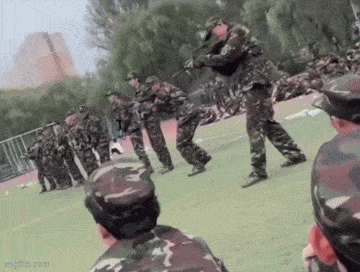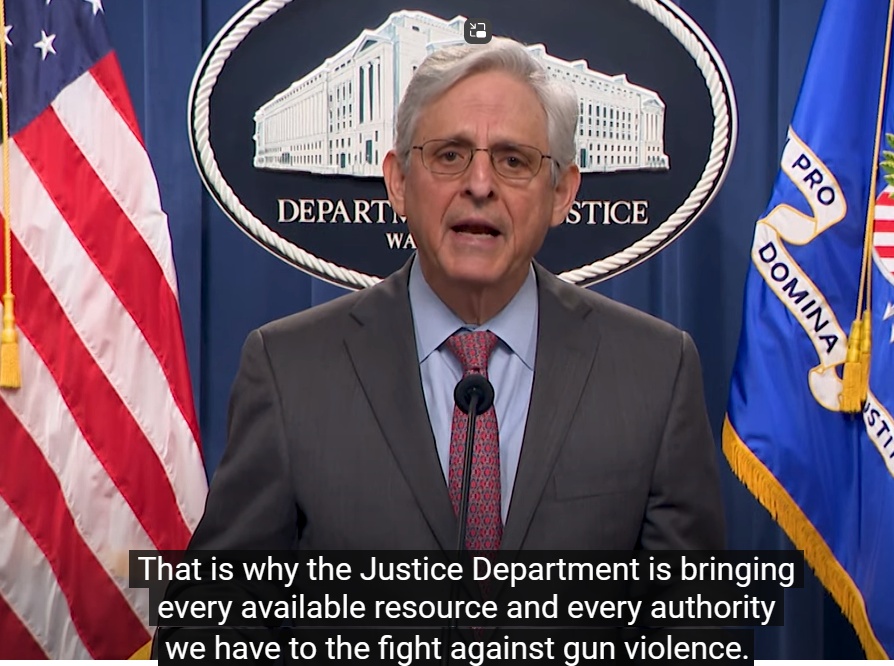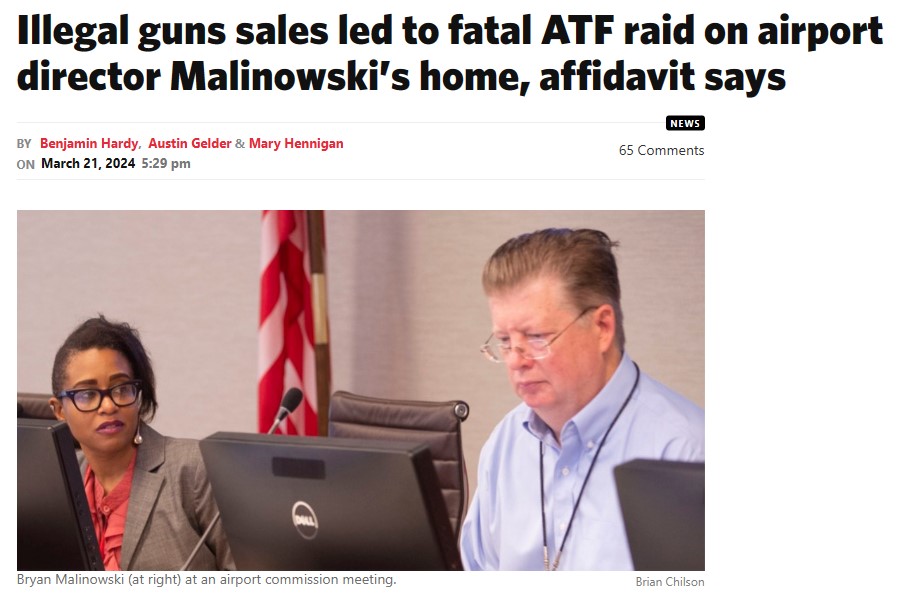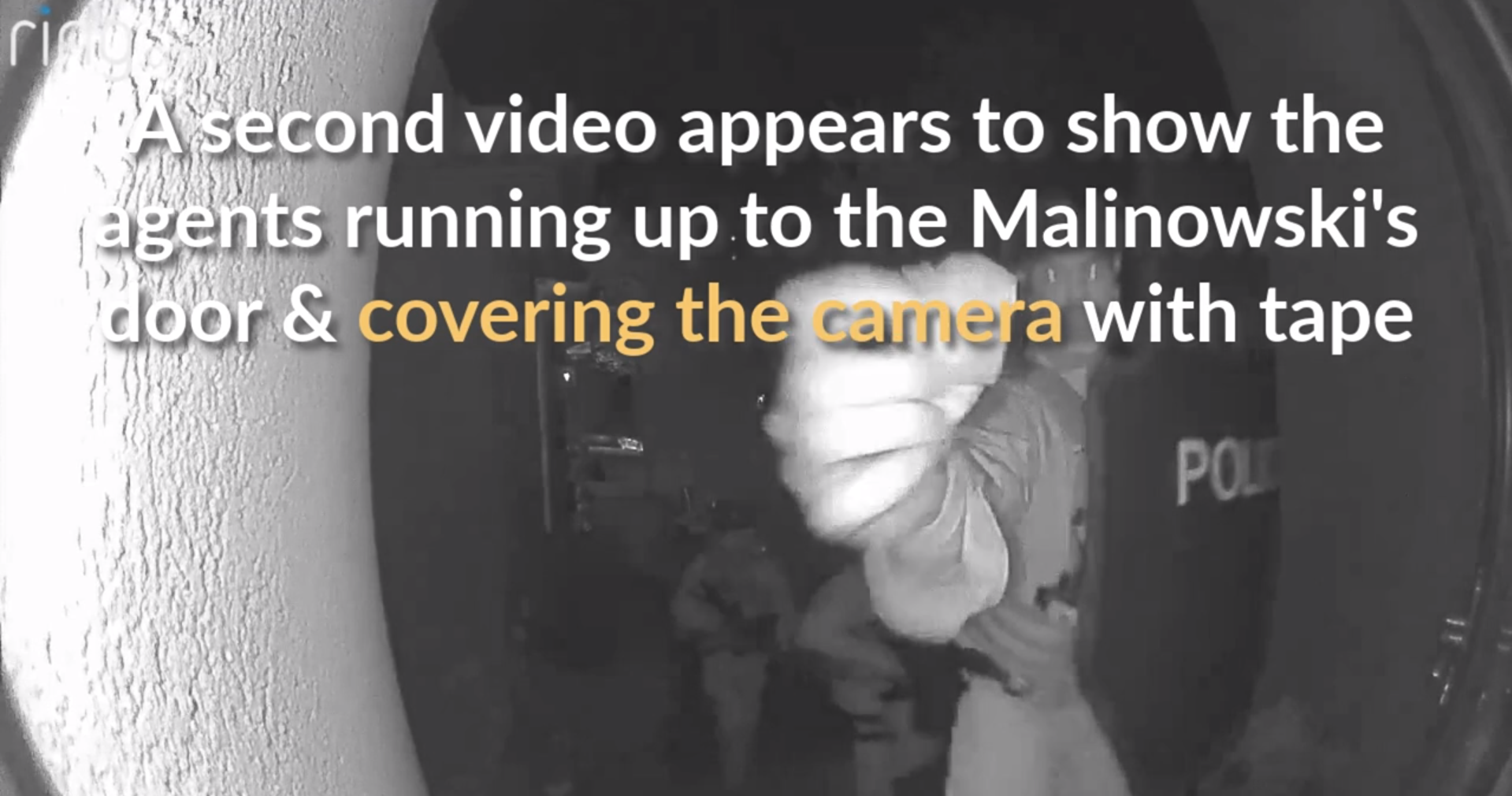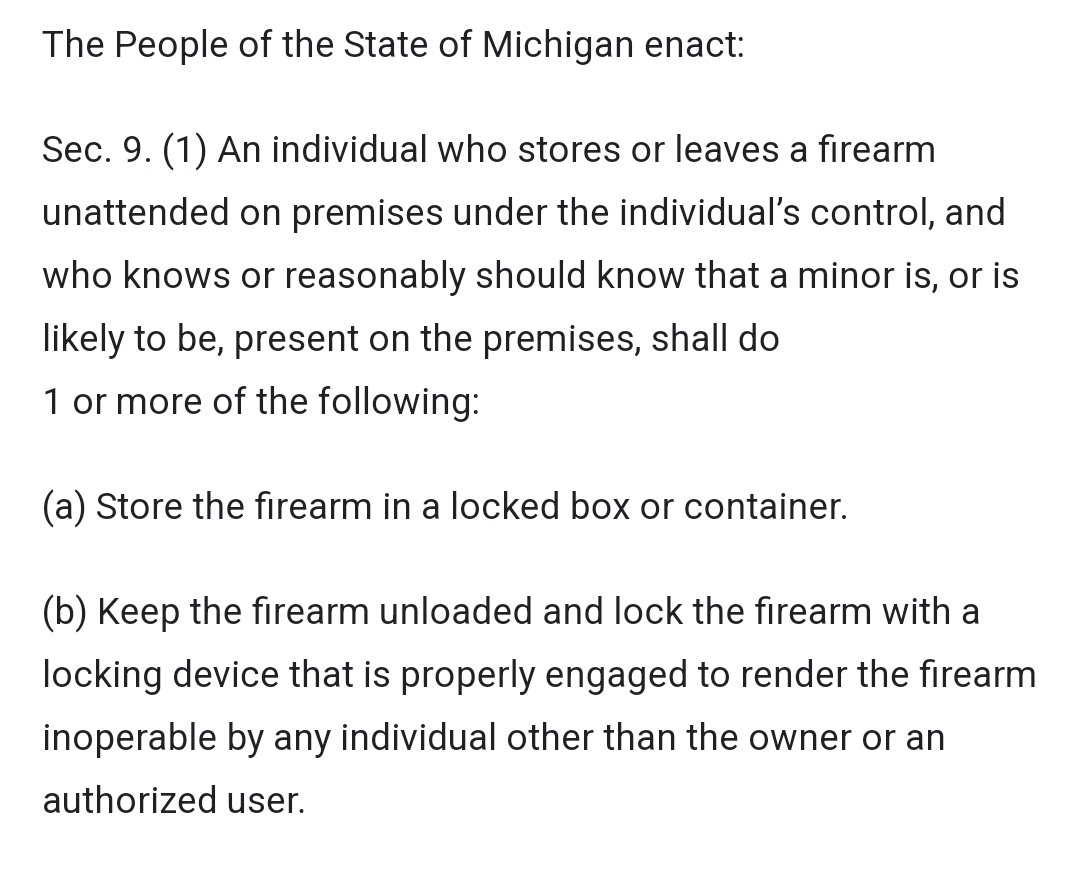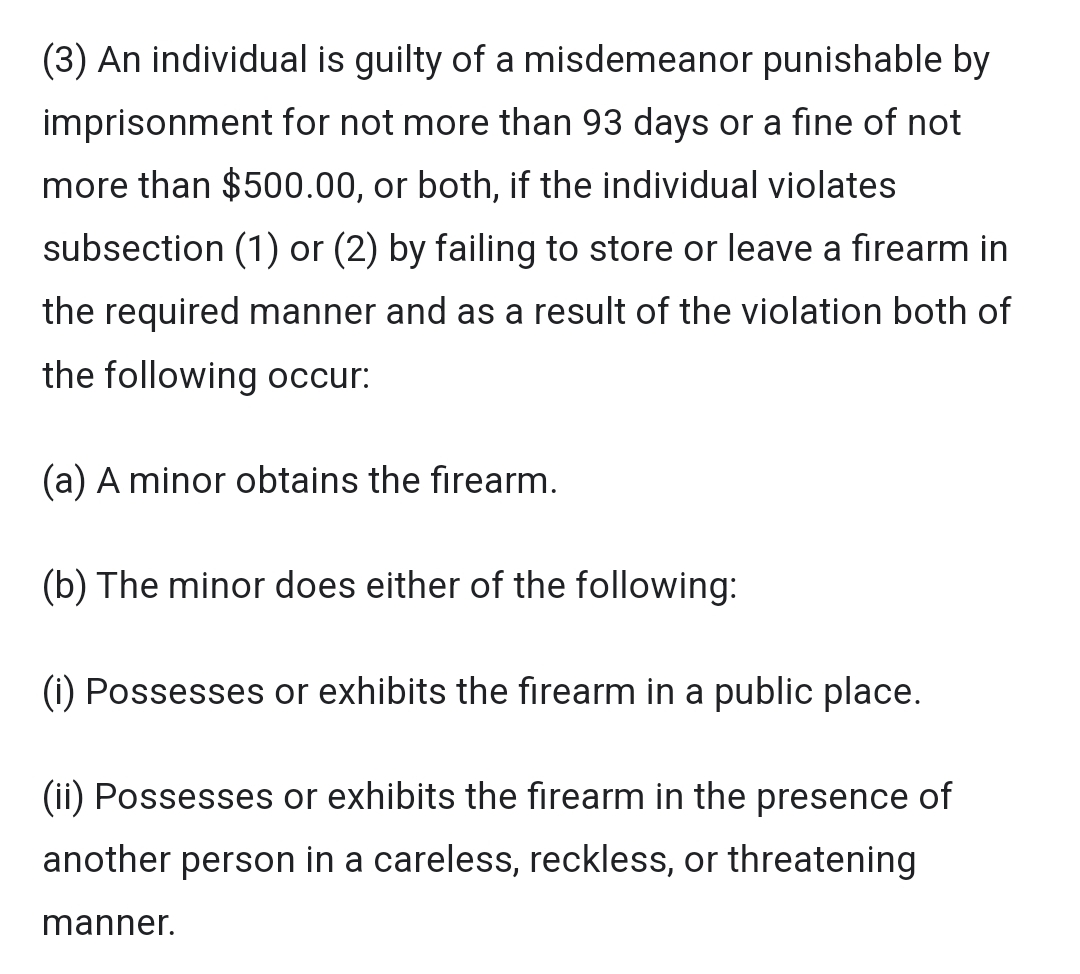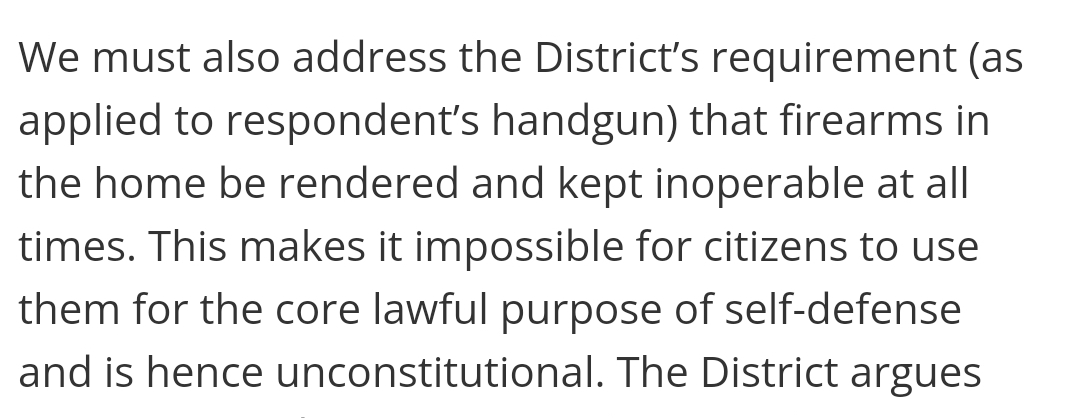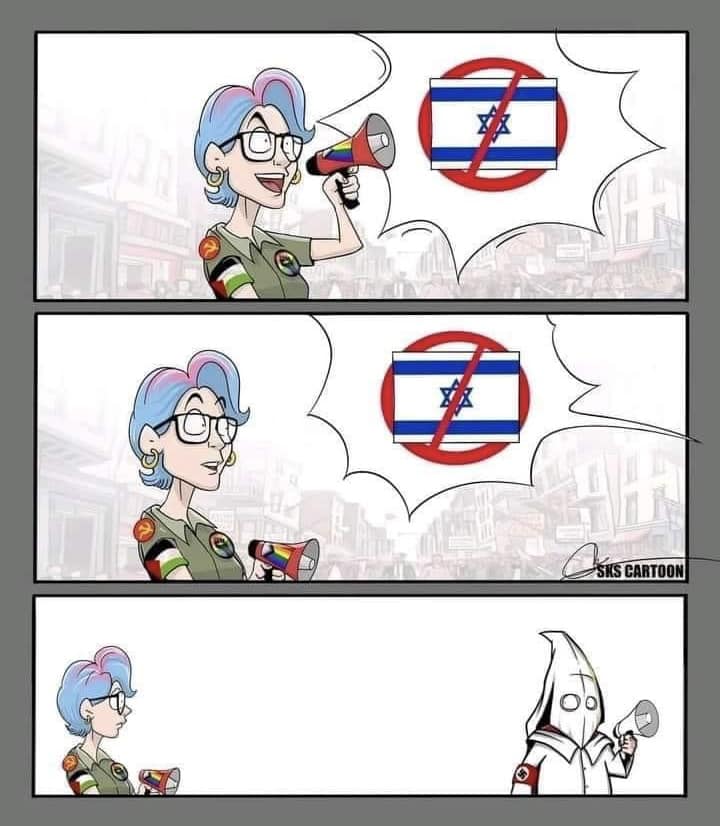Now I cannot help and wonder.
DOJ says that anybody selling a gun is to be considered a dealer and required to get a license, do the paperwork or face punishment, my brain just won’t stop associating current events.
Today, the Justice Department announced it has submitted to the Federal Register the “Engaged in the Business” Final Rule, which makes clear the circumstances in which a person is “engaged in the business” of dealing in firearms and thus required to obtain a federal firearms license, in order to increase compliance with the federal background check requirement for firearm sales by federal firearms licensees.
This struck me as very threatening..
And now I have to wonder if Bryan Malinowski was an object lesson about what is coming up.
Apropos of nothing, I believe I need to reread Unintended Consequences again.
Michigan safe storage law is potential unconstitutional and horrible
Michigan to offer free gun locks to help owners comply with new secure storage laws
Gun locks will soon be available free to the public at local health department offices in Michigan as part of a new program that is to be announced Friday by the Michigan State Police and the Michigan Department of Health and Human Services.
The locks are to be given out at MDHHS county offices and many local health departments statewide to help Michiganders comply with a new secure gun storage law that went into effect in February.
The law now requires all unattended firearms to be unloaded and locked with a locking device or stored in a locked box or safe if a child could have access to it. Anyone who fails to properly lock a gun that a child later uses to injure themselves or another person can be charged with a felony punishable by up to 10 years in prison and/or a fine of up to $7,500.
If an unsecured gun is used by a child to kill another person or themselves, the owner can be charged with a felony punishable by up to 15 years in prison and/or a fine of up to $10,000.
Here is the text from the law:
I see a few problems here.
First, is the potential for abuse.
I can just imagine some ex-wife calling the cops to say her husband has an unsecured gun that their child has access to during visitation.
Second, how is it enforced.
Then there is the question of, what happens if the child defeats the lock?
Those cable locks can be defeated by a pair of wire cutters, not enough to stop a determined teenager.
If a teen breaks into your house and steals your gun, and it was locked but the teen cuts off the cable lock, does the adult still get in trouble?
Third, this is potentially unconstitutional under Heller.
This is from Scalia’s opinion.
Is a loaded gun, locked in a safe, or an unloaded gun with a lock considered inoperable?
It might be, and therefore might be unconstitutional.
You know that I totally believe in locking up your guns. But the state can’t mandate it, and there are too many problems with this law that could get innocent people into trouble.
Nguyen v. Bonta, state tap dance
This is another example of the state twisting and bending to have a small chance of winning.
Given that the appeal is to the Ninth Circuit, they will get the stay they are requesting.
In 1999, California passed a “one gun per month” or OGM law. It is actually difficult to track because it has automatic expirations built in. Each time it is reinstated, it gets worse.
The current incarnation hinders the purchasing of any firearm, completed frames or receivers, or firearm precursor parts.
In other words, this law could limit you to just one chunk-o-aluminum per month.
This was challenged before Bruen. The Heller, McDonald, Caetano, Bruen and other Second Amendment cases decided by the Supreme Court required no discovery and no experts. This is because the question is all legal.
The courts are the experts. The lawyers bring the arguments, the courts follow the law.
If a court tells you that it is qualified to do historical analysis of “the historical tradition of gun regulation” they are admitting they are incompetent.
The job of a lawyer or judge is to know the law. If a court rules on anything, they have examined a historical tradition. This is their job.
On March 11, 2024, the district court issued an order denying the state’s request for summary judgement and granting the plaintiff’s (good guys) motion.
—Nguyen v. Bonta, No. 24-2036 (9th Cir.)
The right of the people to keep and bear arms shall not be infringed.
- To violate; to break laws or contracts.
- To destroy; to hinder.
Emphasis added.
The concept of ancillary right is well established. The case most commonly cited is —Minneapolis Star & Tribune Co. V. Minnesota Commissioner of Revenue, 75 L. Ed. 2d 295 (1983). To bear arms, I need to be able to keep them. In order to “keep” arms, I need to be able to acquire them.
If my ability to acquire arms is hindered, such as an arbitrary limit on the number of purchases, then my right to keep and bear arms has been infringed.
This satisfies the plain text of the Second Amendment.
The Supreme Court has stated that once the conduct implicates the plain text of the Second Amendment, that conduct is presumptively protected.
Notice that word, “presumptively”. The state argues that just because the conduct is presumptively protected does not mean that their infringement is unconstitutional. They can present arguments that might overcome that presumption.
Just like a person charged with a crime is presumed innocent until proven guilty, the law is presumed unconstitutional until the state proves it is constitutional.
The burden rests fully on the state to provide that proof.
While the state is arguing that things that are “presumed” are not actually, they are arguing that a bit of dicta in Heller fully protects their infringing regulation. “Presumptively lawful” means that it is presumed. It is still open to challenge, and when it is challenged, the state has the burden to prove a historical tradition of firearms regulation.
The state resorts to redefining words, First, the OGM law does not implicate conduct protected by the Second Amendment’s plain text because it does not prevent law-abiding citizens from keeping or bearing arms for self-defense.
—Nguyen v. Bonta, No. 24-2036
If the regulation infringes, then it implicates the Second Amendment. The regulation does not need to prevent, it merely needs to hinder. If the person is a part of The People, then they are protected. They do not need to be in the subclass of “law-abiding” nor “citizen”. Remember, there are many aliens that are here legally who are part of the national community.
Finally, the right is to keep and bear arms, not to keep and bear arms for self-defense.
While the Heller opinion does reference self-defense, it does not restrict the meaning of the Second Amendment.
Some wishful thinking by the state:
—id.
’The question is,’ said Alice, ‘whether you can make words mean so many different things.’
’The question is,’ said Humpty Dumpty, ‘which is to be master — that’s all.”
—Lewis Carroll & John Tenniel, Through the looking-glass, and what Alice found there (Macmillan Children’s Books 2. [Dr.]; Repr ed. 1997)
Infringe means to destroy or to hinder. Not “prevent”.
Which brings us back to “presumptively lawful regulatory measure”. This is dicta. Anybody reading this passage honestly understands that the Supreme Court is saying that they have not looked at the question of the constitutionality of commercial sale of arms. For the moment, in that particular case, they are going to presume it is lawful.
This means that it is open to being challenged.
If it is challenged, then the challengers (plaintiffs) have the burden to prove that the plain text of the Second Amendment is implicated.
Is their conduct hindered? Yes. Does their conduct have anything to do with keeping or bearing arms or the ancillary actions associated with keeping or bearing arms? Yes. Then the burden shifts to the state to prove this Nation’s historical tradition of firearm regulation that matches.
That is what Bruen said, that’s what Heller said.

